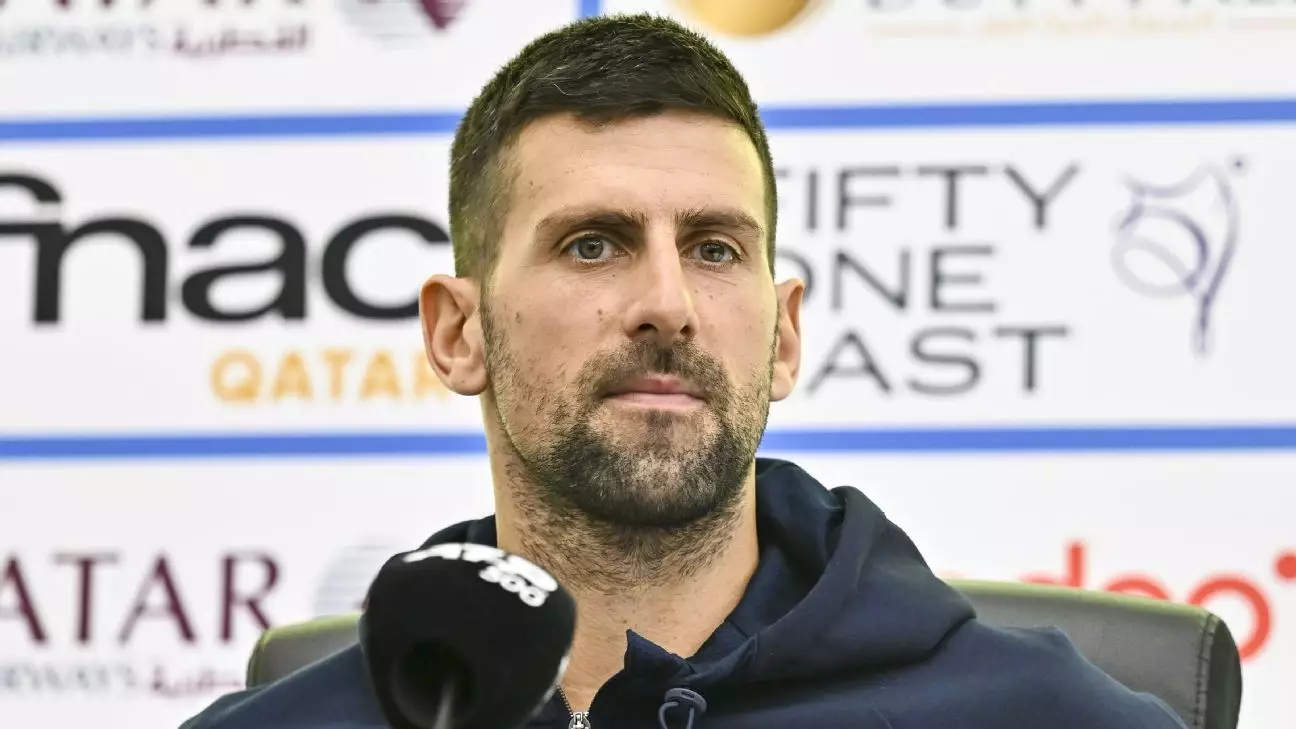In a recent interview during the Qatar Open, tennis icon Novak Djokovic highlighted a troubling trend within the sport: a profound disillusionment among players regarding the efficacy and fairness of anti-doping regulations. His comments follow the case of 21-year-old Jannik Sinner, who received a three-month ban for what was deemed accidental contamination by a prohibited substance. Djokovic’s assertion that “the majority of tennis players have lost faith in the anti-doping authorities” reflects a deep-seated concern that the current framework for addressing doping issues lacks consistency and transparency, thus eroding players’ confidence in the governing bodies.
Djokovic, who boasts a record 24 Grand Slam titles, articulated a sentiment echoed across locker rooms: the perception of favoritism towards high-ranking players. This issue escalates not only into questions of fairness but also into potential damage to the sport’s integrity. The stark contrast between Sinner’s lenient punishment and the harsher sanctions imposed on other players raises red flags about the impartiality of the World Anti-Doping Agency (WADA) and the International Tennis Integrity Agency (ITIA).
Sinner’s case is not isolated; it serves as a case study that invites scrutiny into the anti-doping landscape in tennis. While the ITIA decided to treat Sinner’s positive test for the anabolic steroid clostebol as a result of accidental contamination from a trainer’s use of the substance, this leniency contrasts sharply with the treatment of other athletes. For example, former world No. 1 Simona Halep faced a much harsher penalty after testing positive, receiving a four-year prohibition from competition that was later reduced to nine months. Furthermore, British player Tara Moore’s 18-month suspension exemplifies the drawn-out processes that can afflict athletes, leaving their reputations and careers in jeopardy.
These disparities fuel accusations of double standards in how the system handles cases based on a player’s standing within the sport. Djokovic argues that the transparent inconsistency in rulings undermines players’ confidence in the fairness of the competition, indicating that a top-tier athlete with resources may navigate the system with more ease than their less established counterparts.
Djokovic has called for a comprehensive overhaul of the anti-doping system, stating, “the system and the structure obviously don’t work.” This raises an essential question about the current framework: what changes are necessary to restore confidence among players and ensure equitable treatment for all? A critical examination of the existing processes could lead to solutions that prioritize consistency and fairness, a necessary foundation for maintaining the sport’s integrity.
One potential resolution could involve increased transparency regarding test results and decision-making processes. If stakeholders, including players and fans, could better understand the rationale behind penalties, it may alleviate some concerns regarding favoritism. Moreover, establishing uniform guidelines for assessing doping cases might minimize discrepancies across different circumstances, prompting a more consistent application of penalties.
As the sport faces scrutiny in the wake of these doping scandals, the voices of athletes like Djokovic play a crucial role in advocating for change. The erosion of trust in the anti-doping authorities not only impacts players but ultimately undermines the sport’s integrity as a whole. With a concerted effort towards transparency, fairness, and consistency, tennis can aspire to restore both player confidence and public faith in its regulatory bodies. While the steps forward will require cooperation and commitment from various stakeholders, the need for reform is clear and urgent. It is a time of reckoning for tennis, inviting all involved to reshape the future of the sport toward a more equitable and just framework.


Leave a Reply